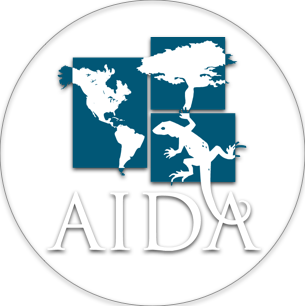It’s a worrying and undeniable fact: 76 percent of the world’s wetlands have been destroyed in the last 40 years. In Latin America, these sensitive ecosystems suffer degradation from extractive industries, tourist activities, real estate projects, and other human causes.
AIDA helped ensure that these threats were recognized as a priority concern of the Secretariat of the Ramsar Convention, an intergovernmental treaty for the protection of wetlands, during its 12th Conference of Parties. The Conference took place from June 2-9 in Punta del Este, Uruguay.
AIDA and other civil society organizations included the risks in a public declaration presented before representatives of the various governments. The Ramsar Secretariat incorporated these threats into the Convention’s Strategic Plan 2016-2024.
“This recognition opens the way for investigations to be made and guidelines established to combat the problem,” said Sandra Moguel, an AIDA attorney who attended the Conference.
“By contributing to the identification of causes for the deterioration of wetlands, we’ve laid the base for the adoption of regulations and other effective measures to conserve these important ecosystems.”
Alongside local organizations, AIDA also presented a petition to alert the Ramsar Secretariat that the Colombian government has failed to fulfill its obligation to protect the country’s páramos, high Andean wetlands. In the petition, we call attention to the impacts that activities such as large-scale mining have on páramos—the source of more than 70 percent of the water in Colombia—and ask the Secretariat to monitor the situation and take action according to their abilities.
The Strategic Plan also recognizes the need to have better synergy with other international environmental treaties—such as the Convention on Biological Diversity and the United Nations Framework Convention on Climate Change—so that the sustainable use and conservation of wetlands attains greater relevance and is carried out more effectively.
This correlation is key. “One of the greatest challenges of the Convention is to appropriately and effectively link the implementation of the treaty with the fight against climate change,” said Carlos Lozano Acosta, an AIDA attorney who also participated in the Conference.
Lozano Acosta reported that one resolution was approved that calls on countries to reserve the quantity of water necessary for the preservation of their wetlands, and another that links the protection of these ecosystems with the mitigation of natural disasters, since wetlands are a natural barrier against hurricanes and storms. But Lozano Acosta lamented the fact that the Conference remained without sufficient and adequate space for civil society participation.
For Moguel, it was a success that—thanks to the efforts of Latin American representatives—all resolutions adopted at the Conference recognized and included in their text the wetlands management done by indigenous people based on their traditional knowledge.
Finally, in a parallel event organized by the International Coral Reef Initiative, AIDA attorneys presented their work defending reefs in the Americas. Particularly, they shared our Guide to Best Practices for Coral Reef Protection and emphasized the cases of Cabo Pulmo and the Veracruz Reef System, both sites in Mexico at risk from tourism and port development, respectively.
AIDA Staff

Founded in 1998, AIDA is a nonprofit environmental law organization that works across international borders to defend threatened ecosystems and the human communities that depend on them.
